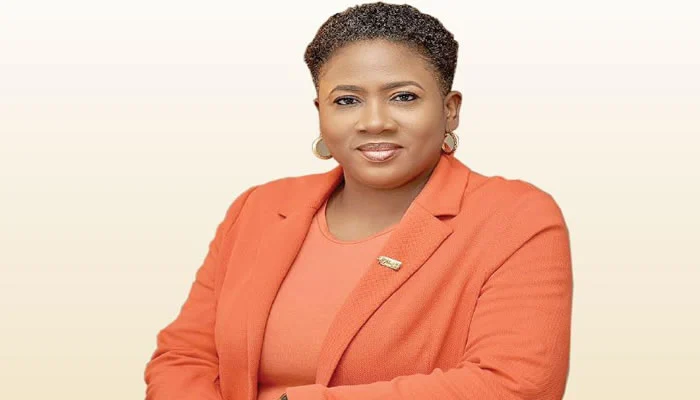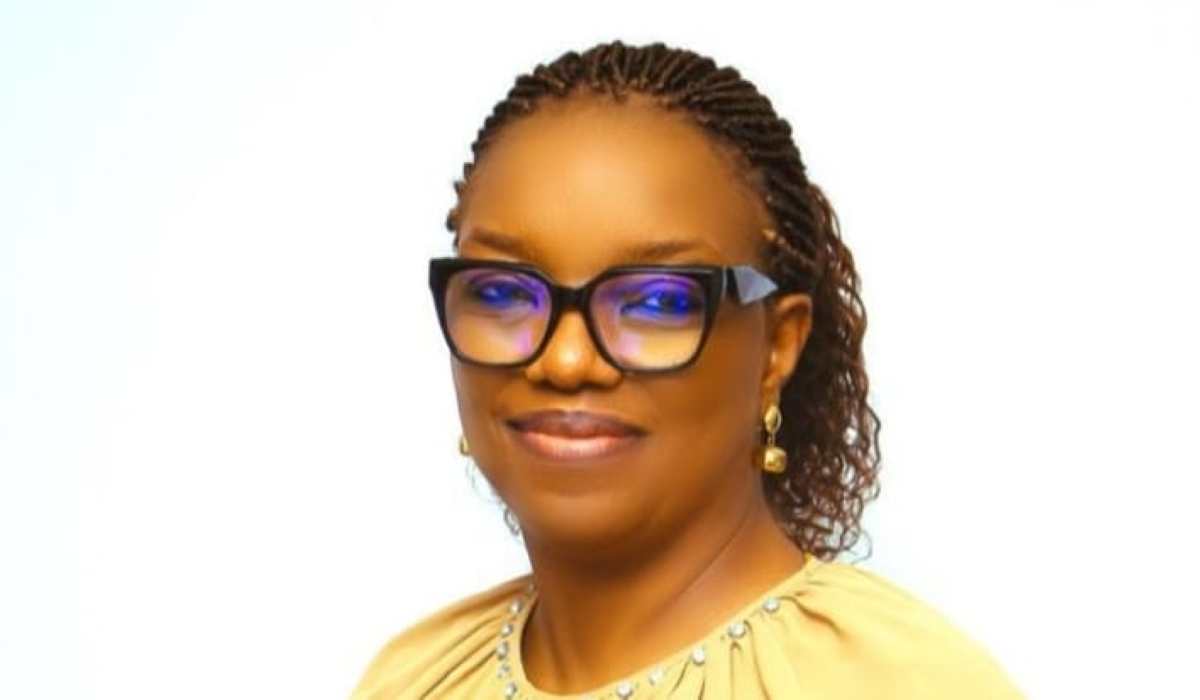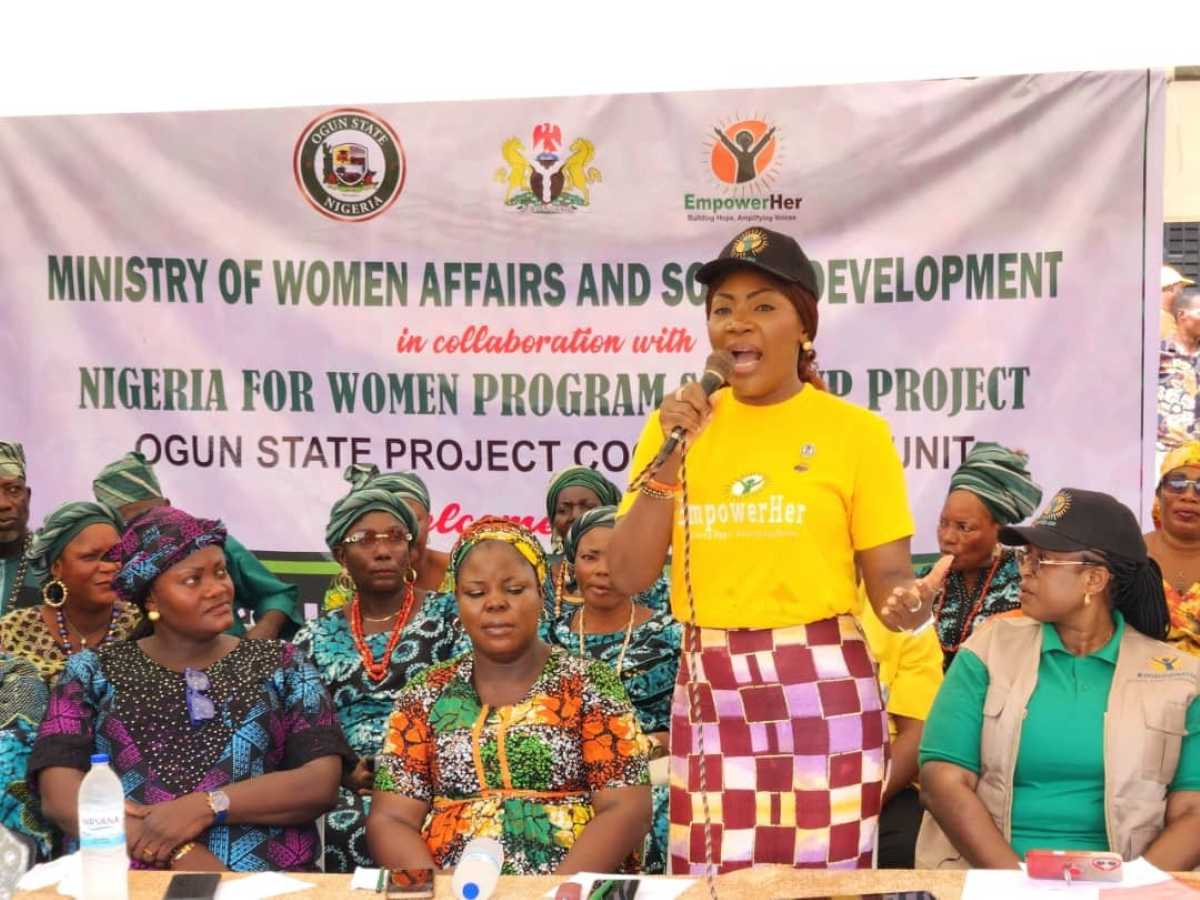Women’s Affairs Minister, Imaan Sulaiman-Ibrahim, has warned politicians in the country to involve women in their policies and programmes or risk facing women’s reactionary votes in the 2027 general elections.
Sulaiman-Ibrahim was speaking on Wednesday afternoon at the two-day Northwest Governors Summit on the Nigeria for Women Project Scale-Up (NFWP-SU) summit, held at the Presidential Banquet Hall, Government House, Katsina State.
She said women’s empowerment is an issue any government needs to take seriously, adding that with the level of awareness amongst women in the country, politicians who don’t give women the needed priority may risk losing women’s votes during the next general elections.
The minister, however, commended the President Bola Tinubu-led administration for giving attention to women’s empowerment, assuring that Tinubu’s government and those of some women-friendly governors would get women’s votes in 2027.
“Neglect women, neglect votes. Women don’t gamble; they follow those who know the road. Women will vote for President Bola Tinubu and some state governors in 2027 so that they can continue to support women,” she said.
The minister said the summit aims to institutionalise a future where women are economically empowered, socially secure, and politically visible.
She said the NFWP is a $100 million program by the World Bank, and that the government is considering applying for additional funds to ensure the program has a wide reach across the country.
“The Nigeria for Women Project – and now its Scale-Up – remains one of the most impactful national platforms to deliver real, quantifiable transformation to women.
“Considering the fact that women constitute over 60 per cent of Nigeria’s population, yet only about 30 per cent of them own formal businesses in the form of micro, small and medium enterprises in Nigeria.
“Yet women continue to struggle with access to credit, market and financial literacy. Limited access to capital means that many women entrepreneurs are locked in small-scale activities, unable to grow their businesses or leverage opportunities in the formal economy.
“Data from the Enhancing Financial Innovation and Access (EFInA)’s Access to Financial Services in Nigeria (A2F) survey in 2023 reveals a deeply unsettling reality: the Northwest region has the highest rate of financial exclusion among adults, with 47 per cent lacking access to both formal and informal financial services.
“This gap limits women’s ability to build resilience, invest in livelihoods and escape poverty. This highlights the severity of the exclusion and reinforces the urgency of scaling gender-responsive interventions like the NFWP.
“Lessons learned from NFWP (Pilot Project) will be sustained in the Scale-up phase, including: Addressing Social Norms before implementation, Integrated Programming, livelihood Interventions, enabling environment, Access to Credit, WAG Formation and Strengthening, Improved Savings Culture, Women Leadership, Group Governance.”
She said currently, 32 states have signed on to the NFWP-SU, and that this milestone demonstrates widespread political buy-in and a unified vision for inclusive national development.
“It also reflects the strength of our federating structure—women’s empowerment is no longer a peripheral concern but a national priority.
“Notably, Katsina and Ekiti states have begun community-level implementation. Women Affinity Group (WAG) formation is underway. As you are aware, WAGs are the foundational unit for collective savings, livelihoods, and social transformation.
“These groups have already proven to increase household income by up to 30 per cent and reduce dependence on informal credit sources by over 40 per cent in pilot states.
“Working closely with our Task Team and the World Bank, we aim to onboard more states by August 2025, and scale implementation in at least eight additional states by the end of July.
“Our coordination architecture is ready. Technical assistance is in place. Monitoring systems are being refined to ensure data-driven delivery.
“With all states now expressing interest in joining the Scale-Up initiative, it has become imperative for the Government to explore the possibility of securing an additional facility from the World Bank Group to effectively accommodate this expanded participation,” she said.
Governor Dikko Radda, on his part, said that about one million workers are expected to benefit from the program in three local government areas of the state.
Radda said that with the success of the NFWP, the state government decided to contribute to the counterpart fund so that women in the remaining 31 council areas would also benefit.






